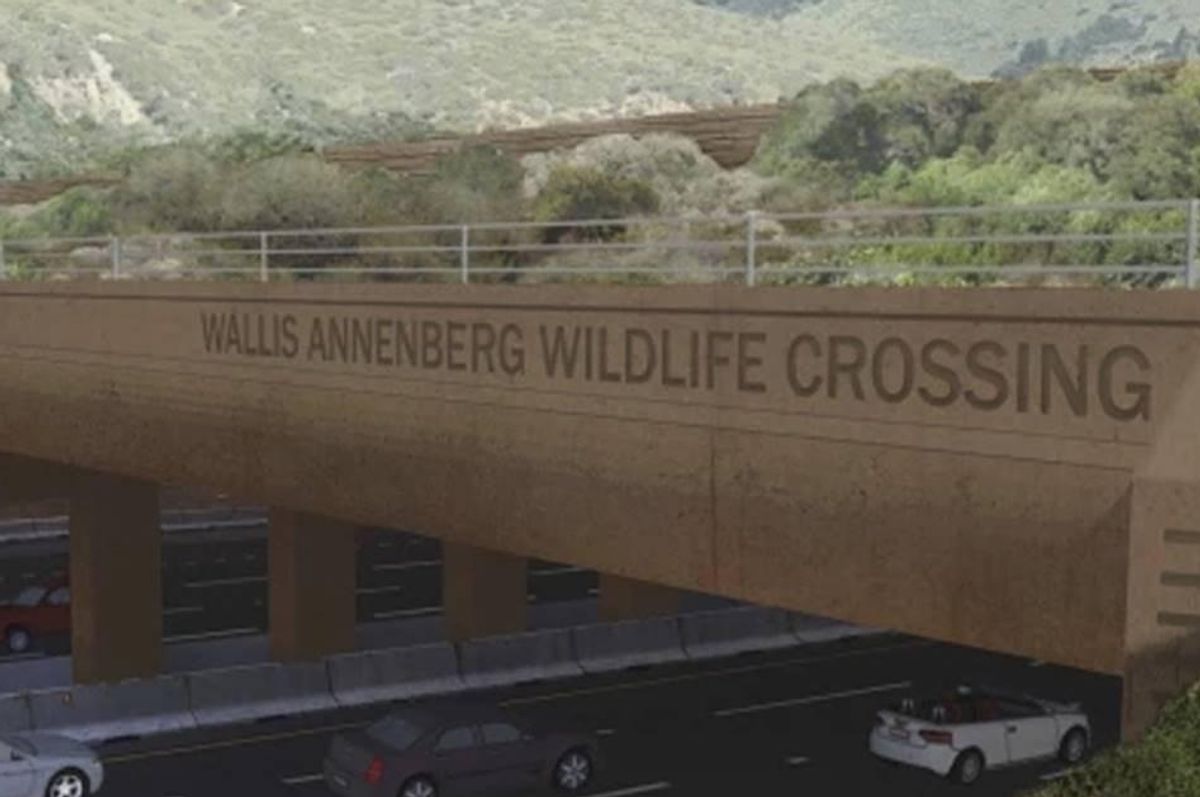
On Earth Day, April 22, 2022, there will be a historic groundbreaking 35 miles northwest of downtown Los Angeles. Construction will begin on the world’s largest wildlife crossing, which will connect two parts of the Santa Monica mountains that have been long separated by the 10-lane 101 freeway.
Sixty percent of the $90 million bridge—named the Wallis Annenberg wildlife crossing—is being paid for by private donations and the rest will come from state funds set aside for conservation purposes.
The massive 210-foot long and 165-foot wide bridge will allow safe passage for mountain lions, coyotes, deer, lizards, snakes and other animals to the other side to allow them to find mates and food. Increasing the number of potential mates will work to increase the genetic diversity among the various species.
“There’s a reason I wanted to support this crossing and issue this challenge: We need to move beyond mere conservation, toward a kind of environmental rejuvenation,” said philanthropist Wallis Annenberg, who donated $25 million to the project.
“Wildlife crossings are powerfully effective at doing just that—restoring ecosystems that have been fractured and disrupted. It’s a way of saying, there are solutions to our deepest ecological challenges, and this is the kind of fresh new thinking that will get us there,” Annenberg continued.
The bridge is designed to seamlessly integrate with the landscape and will feature vegetated sound walls to decrease the light and the noise coming from the freeway.
The crossing will allow animals on both sides to have access to the entire 150,000-acre space in the Santa Monica mountains. It will also help support the local mountain lion population, which is estimated to have dwindled to 10 to 12 animals. At least 25 big cats have been killed on L.A.-area freeways over the past 20 years.
The latest death was last month when a young mountain lion was struck by a car on Pacific Coast Highway.
“We have the chance to give these mountain lions a shot at a future,” said Beth Pratt, a conservation leader with the National Wildlife Federation.

The bridge will help improve the area’s biodiversity and it will also serve as a reminder for the 300,000 people who drive through the area each day that we share the planet with other living beings.
“Someone could be in rush-hour traffic, and there could be a mountain lion right above them,” Pratt said. “I think that’s such a hopeful image, and one that inspires me that we can right some of these great wrongs.”

The state’s governor, Gavin Newsom, says the project is an “inspiring example” of public-private partnership.
“California’s diverse array of native species and ecosystems have earned the state recognition as a global biodiversity hotspot. In the face of extreme climate impacts, it’s more important than ever that we work together to protect our rich natural heritage,” Newsom said in a statement.
The project’s lead architect, Robert Rock from Living Habitats in Chicago, hopes the bridge will inspire a movement that reconnects man and nature.
“As both a tool for and a symbol of connection, it will stand as an alluring challenge to future generations to pick up the mantle of design to bridge the gaps elsewhere in our world,” he says.
